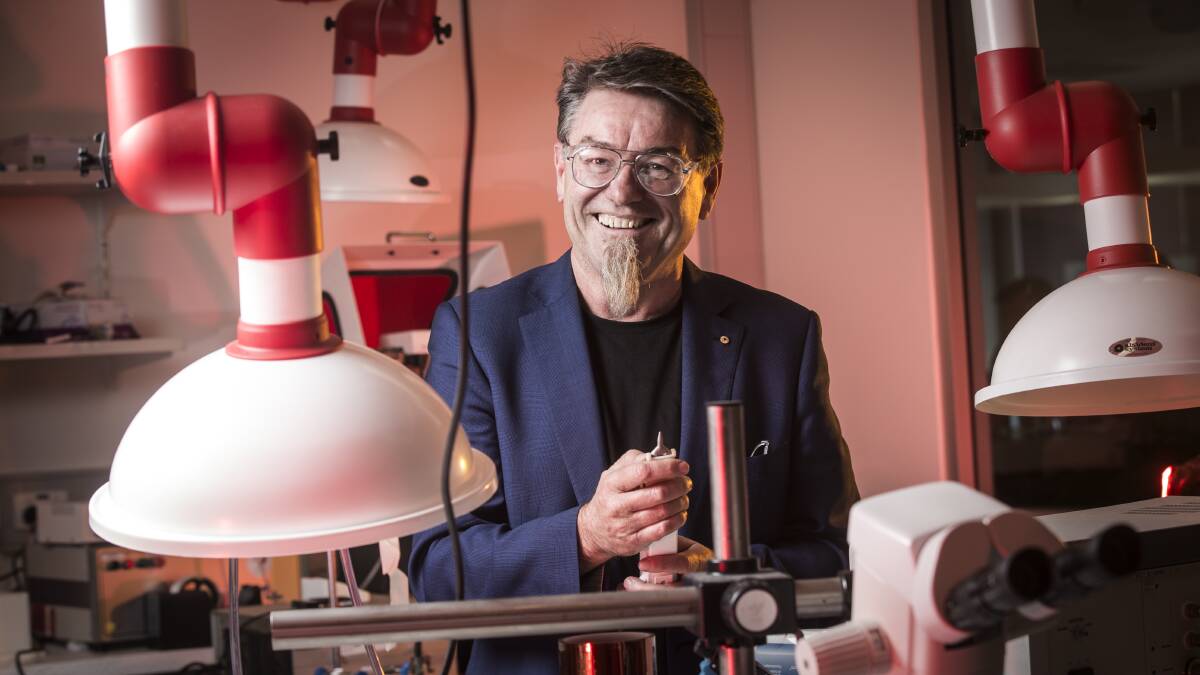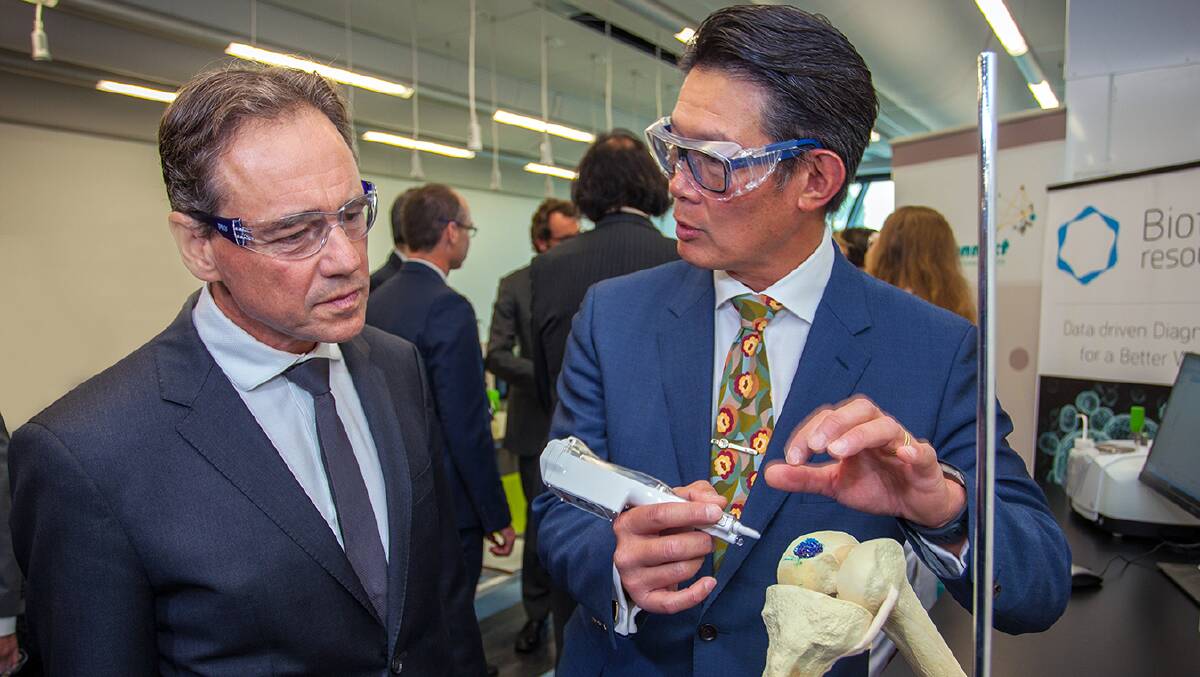
The team behind the Biopen, which can be used in surgery to repair damaged cartilage, have received plenty of awards and pats on the back for their groundbreaking work.
Subscribe now for unlimited access.
or signup to continue reading
This is appreciated, but not as much as a project funding boost to the tune of almost $1 million.
On Wednesday, the Biopen project, jointly developed by the University of Wollongong and St Vincent’s Hospital Melbourne, was selected as a recipient of investment for the Australian Government’s BioMedTech Horizons program.
This show of faith was welcomed by UOW’s ARC Centre of Excellence for Electromaterials Science (ACES) director Professor Gordon Wallace.
He said the Biopen project represents the convergence of science, engineering and medicine to deliver a novel solution for repairing cartilage damage using the latest technologies in stem cell science, 3-D printing and tissue engineering.
The BioMedTechHorizons grant will enable the partnership between Australian academia, healthcare and industry to lead and translate our research discoveries at the coal face of care.
- Professor Gordon Wallace
“The BioMedTechHorizons grant will enable the partnership between Australian academia, healthcare and industry to lead and translate our research discoveries at the coal face of care,” Prof Wallace said.
He said the project was focused on creating a hand-held 3D printer pen filled with stem cell ink, to ‘draw’ new cartilage into damaged knees.
This will give surgeons greater control over joint repairs, and reduce the time a patient is in surgery.
Headquartered at UOW, ACES will develop a unique bioink formulation as well as work with or establish a new entity to produce and supply larger quantities of the ink formulation for commercial purposes.
This project also incorporates Biosphere, a novel stem cell technology developed by Swinburne University and St Vincent’s Hospital that will be used to provide clinically relevant cell numbers for use in tissue regeneration.
The Biopen paves the way for the Melbourne-led team to eventually repair damaged bones, muscles and tendons, and reduce the need for joint replacements.
“This project builds upon fundamental research within ACES, bringing together a multidisciplinary team to ensure translation,” Prof Wallace said.
The Biopen was one of 11 projects selected for the first round of the $10 million BioMedTech Horizons program investment.

Sue MacLeman, managing director and CEO of MTPConnect – the Medical Technology, Biotechnology, and Pharmaceutical (MTP) Industry Growth Centre, said the BioMedTech Horizons program is providing the necessary support to boost investment, commercialisation and success of health innovations in Australia.


